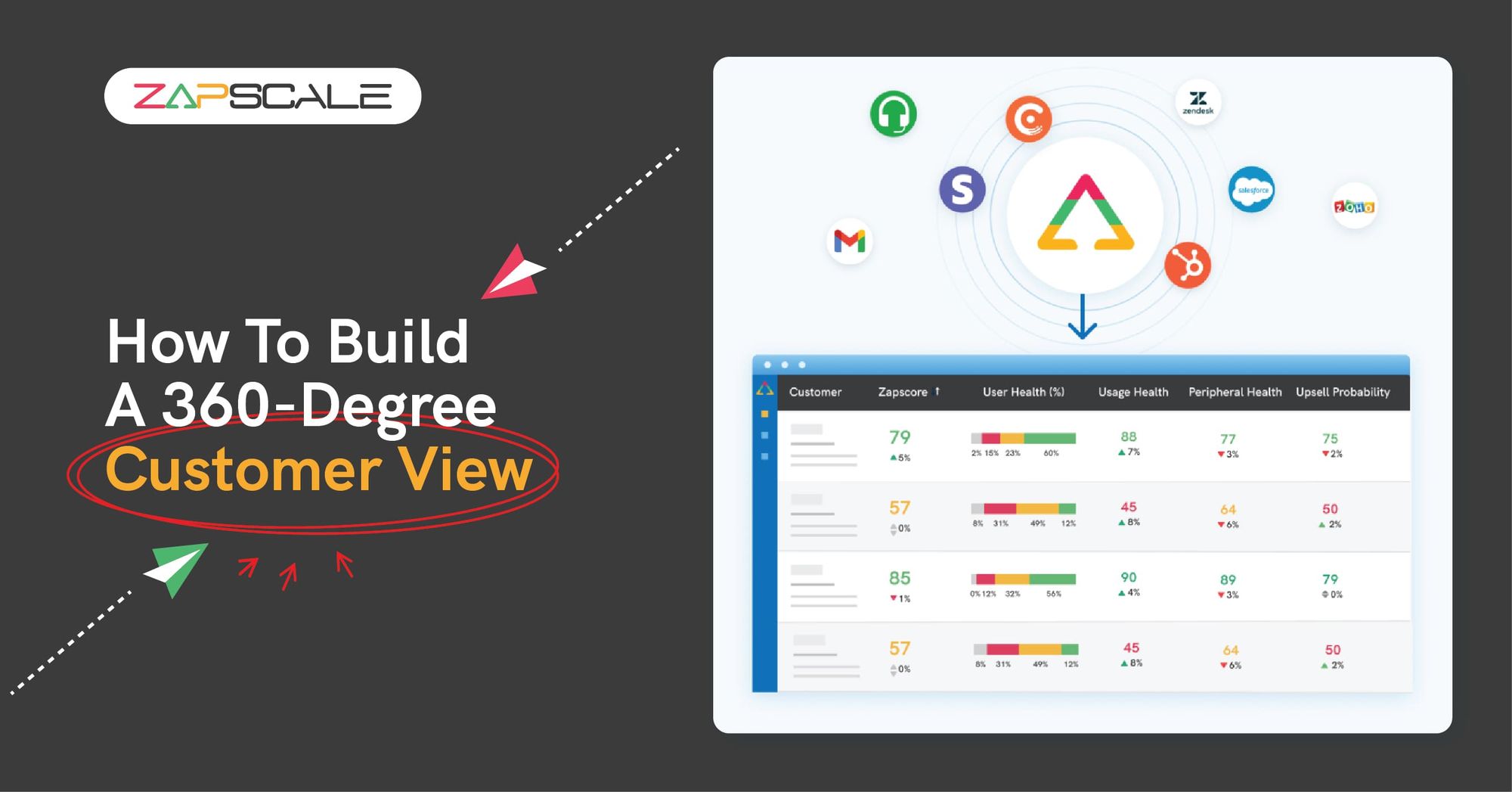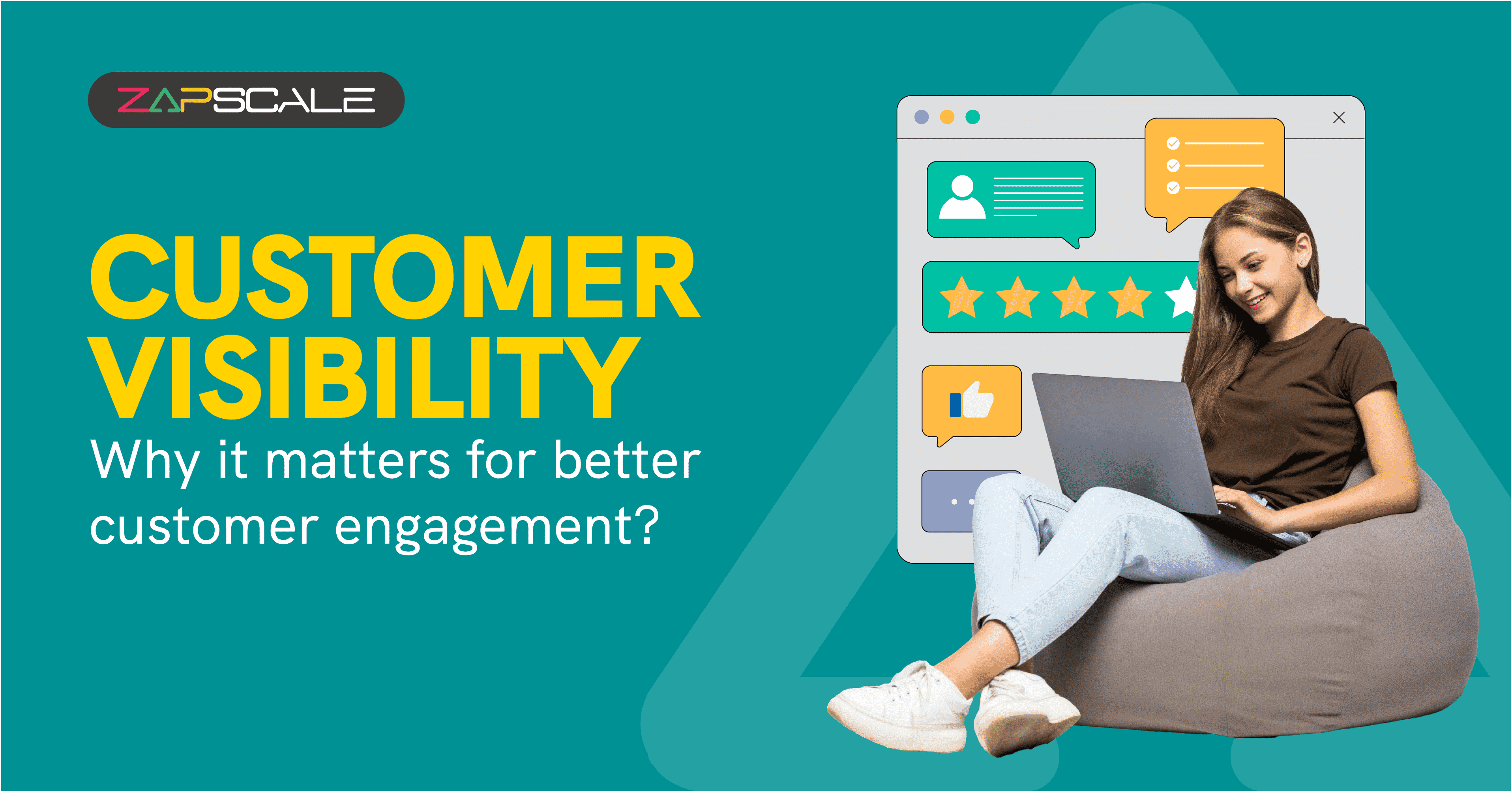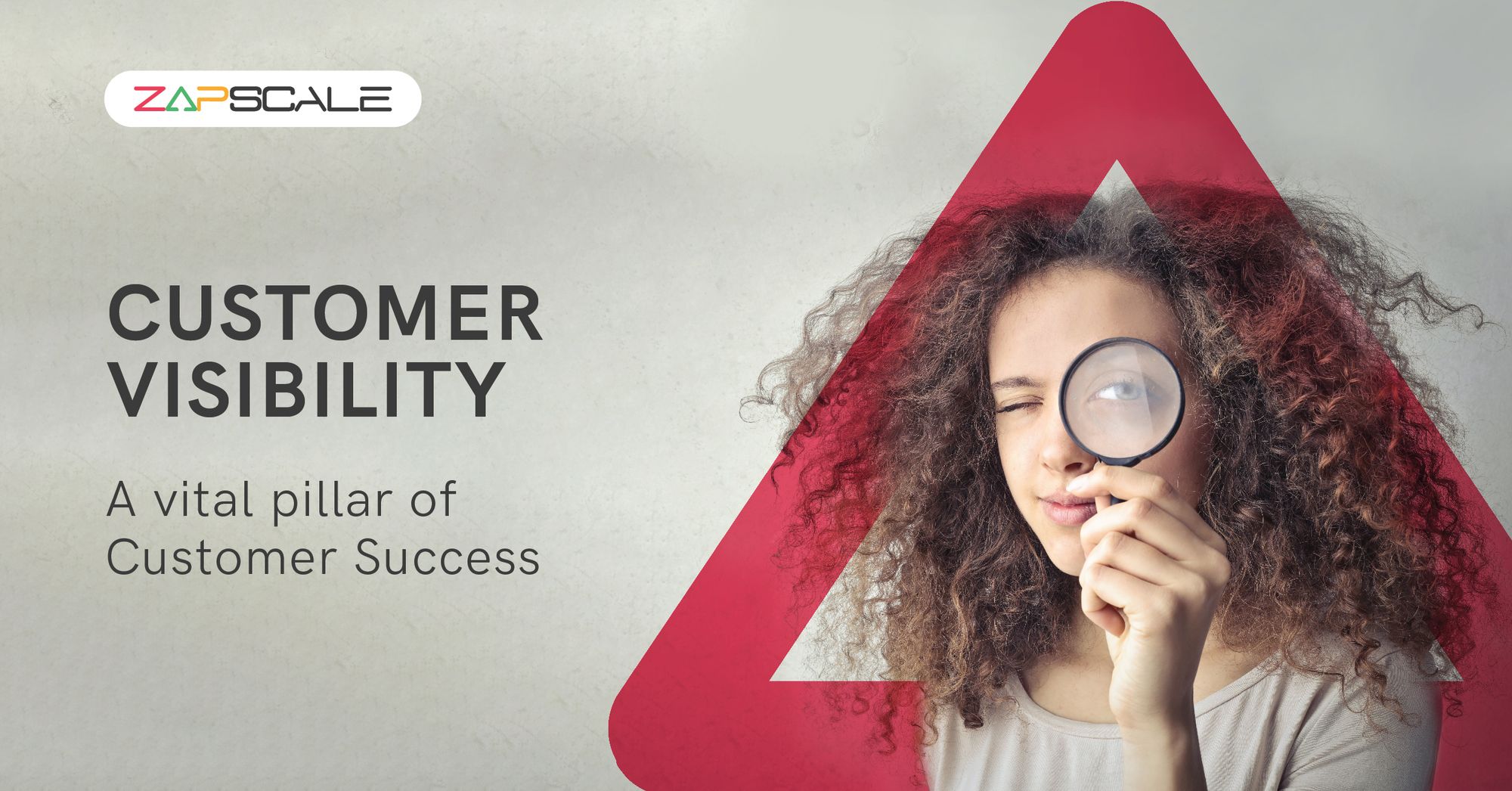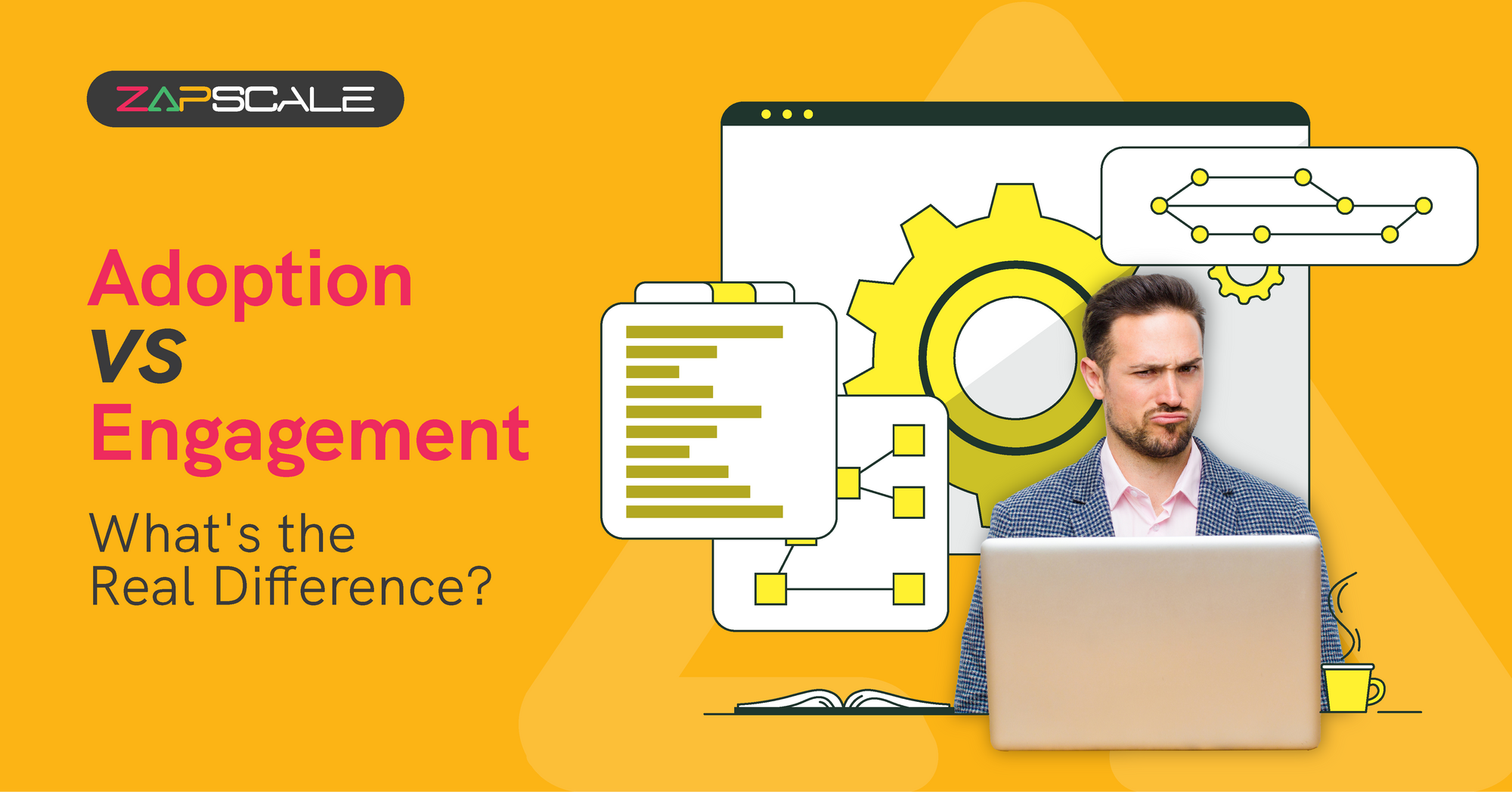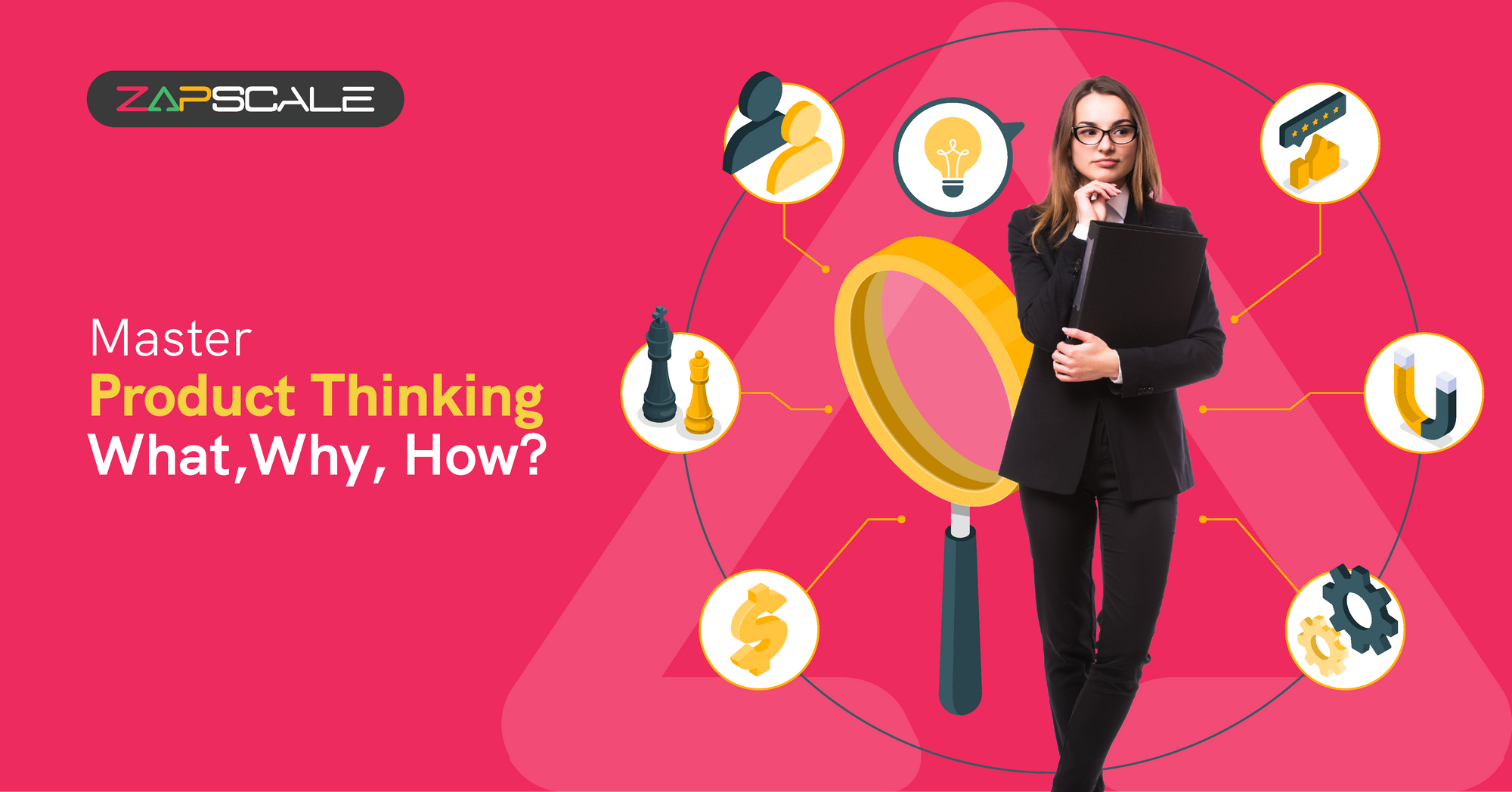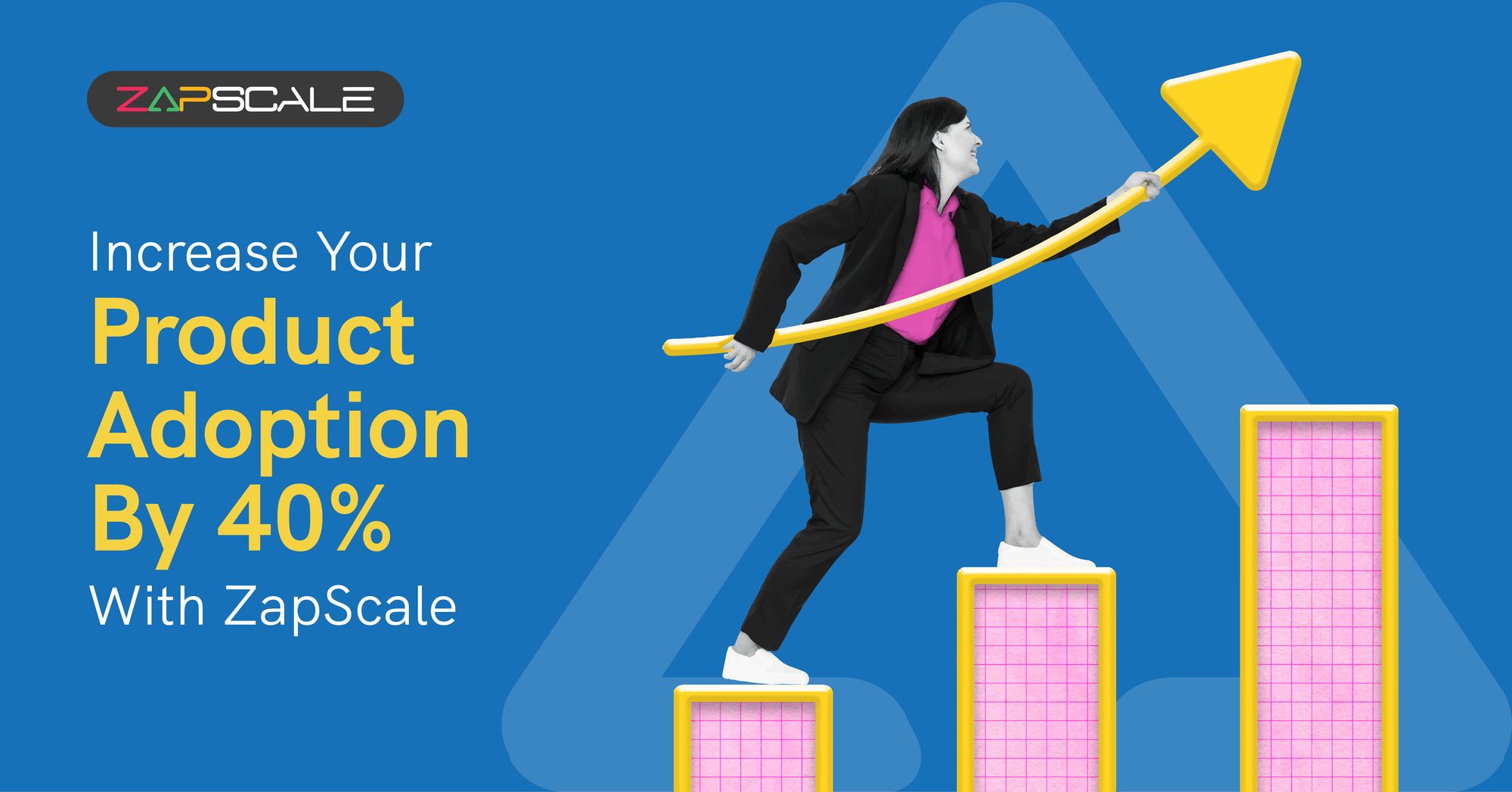CATEGORY > Customer Visibility
Complete Guide to Customer Data Integration Platforms for SaaS
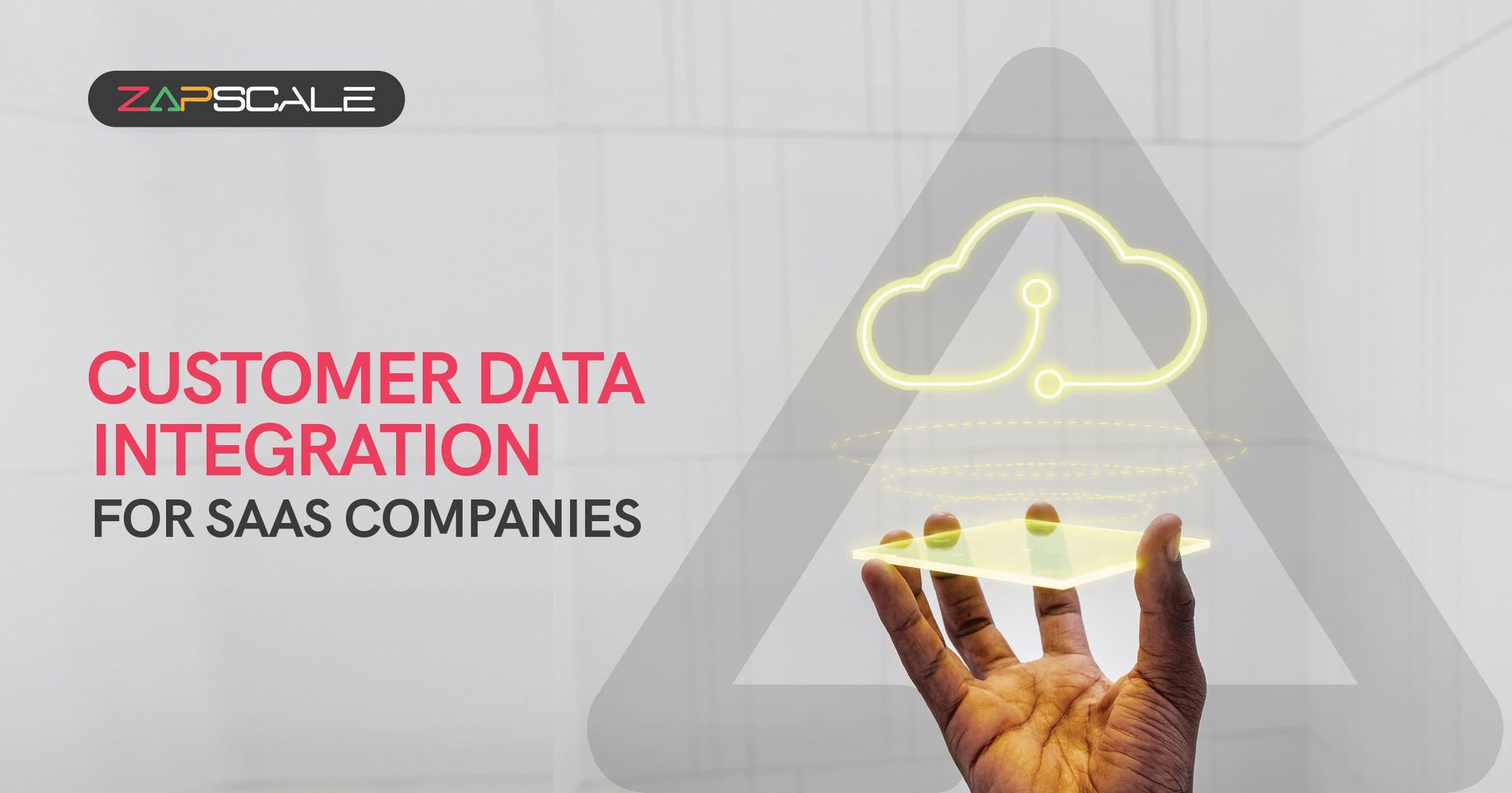
Introduction
Customer Data Integration (CDI) platforms are software solutions that help businesses collect, unify, and manage customer data from multiple sources. CDI platforms can help businesses create a single, unified view of their customers, which can then be used to improve customer experiences, drive revenue, and make better business decisions.
CDI platforms have become increasingly important for SaaS companies in recent years. As SaaS companies collect more and more customer data from a variety of sources, it can become difficult to manage and make sense of all of that data. CDI platforms can help SaaS companies overcome this challenge by providing a central place to store and manage all of their customer data, and by making it easy to analyze that data to gain insights.
How does a customer data integration platform works?
CDI platforms can typically perform the following tasks:
1. Collect Data From Multiple Sources
CDI platforms can collect data from a variety of sources, including CRM systems, marketing automation platforms, e-commerce platforms, and customer support systems.
2. Unify Data
Once data has been collected from multiple sources, CDI platforms unify it by cleaning and transforming the data into a consistent format. This makes it easier to analyze the data and gain insights.
3. Manage Data
CDI platforms provide a central place to store and manage all customer data. This makes it easy for users to access the data they need, when they need it.
How were CDI platforms used in the past?
CDI platforms have been used by businesses of all sizes for many years. However, they have become increasingly popular in recent years as businesses collect more and more customer data from a variety of sources.
Some examples of how CDI platforms have been used in the past include:
How can CDI platforms benefit SaaS companies?
CDI platforms are particularly relevant for SaaS companies for a number of reasons.
- First, SaaS companies typically collect a lot of customer data from a variety of sources. This data can come from the SaaS company's own products and services, as well as from third-party sources such as finance, marketing, and support tools.
- Second, SaaS companies need to be able to use their customer data to improve their products and services and to drive sales. CDI platforms can help SaaS companies do this by providing a central place to store and manage all of their customer data, and by making it easy to analyze that data to gain insights.
- Finally, SaaS companies need to be able to comply with data privacy regulations. CDI platforms can help SaaS companies do this by providing a secure place to store customer data, and by making it easy to control who has access to that data.
Key advantages of a Customer Data Integration platform
SaaS companies can use CDI platforms in a variety of ways. Some common use cases include:
1. Personalizing the customer experience
CDI platforms can help SaaS companies personalize the customer experience by providing a unified view of each customer's interactions with the company. This information can then be used to create targeted offers, recommendations, and support experiences.
2. Improving product and service development
CDI platforms can help SaaS companies improve their product and service development by providing insights into customer behavior and preferences. This information can then be used to make informed decisions about new features, pricing, and marketing campaigns.
3. Driving sales and marketing
CDI platforms can help SaaS companies drive sales and marketing by making it easy to segment customers and target them with relevant messages. CDI platforms can also be used to track the performance of marketing campaigns and to identify areas for improvement.
Challenges in using Customer Data Integration Platforms
1. Data quality
It is important to ensure that the data being collected and unified by the CDI platform is of high quality. This means cleaning the data to remove any errors or inconsistencies. It is also important to ensure that the data is complete and accurate.
2. Data security
SaaS companies need to ensure that the CDI platform they choose is secure and that their customer data is protected. This is especially important in light of the recent increase in data breaches.
3. Data Governance
SaaS companies need to have a data governance policy in place to define how customer data is collected, used, and shared. This policy should be aligned with the company's overall data strategy.
4. Complexity
CDI platforms can be complex to implement and use. It is important to choose a platform that is easy to use and that has good customer support.
Difference between CDI platforms and Customer Success Platforms
1. Focus
Customer Success Platforms are laser-focused on customer retention and expansion. SaaS companies thrive on a subscription-based model where customer lifetime value is crucial. CSPs help SaaS companies understand and manage customer health, proactively address issues, and ensure long-term relationships.
In contrast, CDI platforms focus on gathering, integrating, and maintaining data from various touchpoints across the customer's journey. For a SaaS company with customers interacting through multiple channels, CDI platforms ensure that all data is consolidated, up-to-date, and accessible.
2. Application
CSPs are often used to identify at-risk customers, improve onboarding processes, and enhance overall customer satisfaction. They can help SaaS companies in targeting upsell opportunities by understanding customer usage patterns and predicting potential churn.
CDI platforms play a pivotal role in creating a single source of truth for customer data. This can be particularly beneficial for personalization and segmentation, allowing SaaS companies to deliver targeted marketing campaigns, product features, and support.
3. User Experience
CSPs are integral for delivering exceptional customer experiences. They ensure that customer interactions are personalized and timely, directly impacting customer satisfaction and loyalty.
While CDI platforms might not directly enhance user experience, they set the stage for personalized interactions and services. The comprehensive customer data gathered and maintained by CDI platforms can be leveraged by SaaS companies to offer personalized features, communication, and support.
4. Predictive Analysis
CSPs often use predictive analytics to anticipate customer behavior and needs.
By analyzing customer usage data, feedback, and engagement patterns, CSPs help predict churn, identify cross-sell and upsell opportunities, and tailor services to prevent customer loss.

Predictive analytics in CDI platforms revolve around data-driven insights. By analyzing a wide array of customer data, including interactions, transactions, and demographics, CDI platforms can help forecast trends, identify opportunities, and enhance decision-making.
5. Data Integration and Management
While CSPs do collect and analyze data, their focus is more on actionable insights to drive customer success strategies.
CDI platforms shine in their ability to seamlessly integrate and manage customer data. They play a critical role in ensuring that all departments in a SaaS company have access to accurate and up-to-date customer information.
CSPs are more about driving customer success strategies, while CDI platforms focus on the comprehensive management and utilization of customer data.
Customer Data Integration Strategies
Here are some key strategies for customer data integration:
1. Create A Unified Customer Profile
Creating a unified profile for each customer that combines data from multiple touchpoints ( e.g., CRM, marketing automation, support systems) to provide a comprehensive understanding.
2. Data Quality Management
Keep your data accurate, consistent, complete, and relevant by using tools and processes dedicated to maintaining high data quality.
3. ETL (Extract, Transform, Load)
Extract data from previous sources, transform it into a consistent format, and load it into a central repository or data warehouse.
4. API Integration
Connect different systems through APIs to enable real-time data sharing and access.
5. Master Data Management
Establish a system for keeping key customer information to ensure consistency and reliability across all data sources.
6. Data Governance
Implementing policies and controls to ensure data integrity, security, and compliance.
7. Cross-functional Collaboration
Aligning departments such as sales, marketing, and customer support to ensure integrated data supports all functions effectively.
Customer Data Integration and Customer Success Platforms Today
New-age Customer Success platforms like ZapScale are evolving to incorporate the capabilities of Customer Data Integration (CDI), providing an end-to-end solution for managing customers and their data.
These platforms are designed to go beyond traditional customer success functions and offer comprehensive data management capabilities, integrating data from various sources to create a unified customer view.
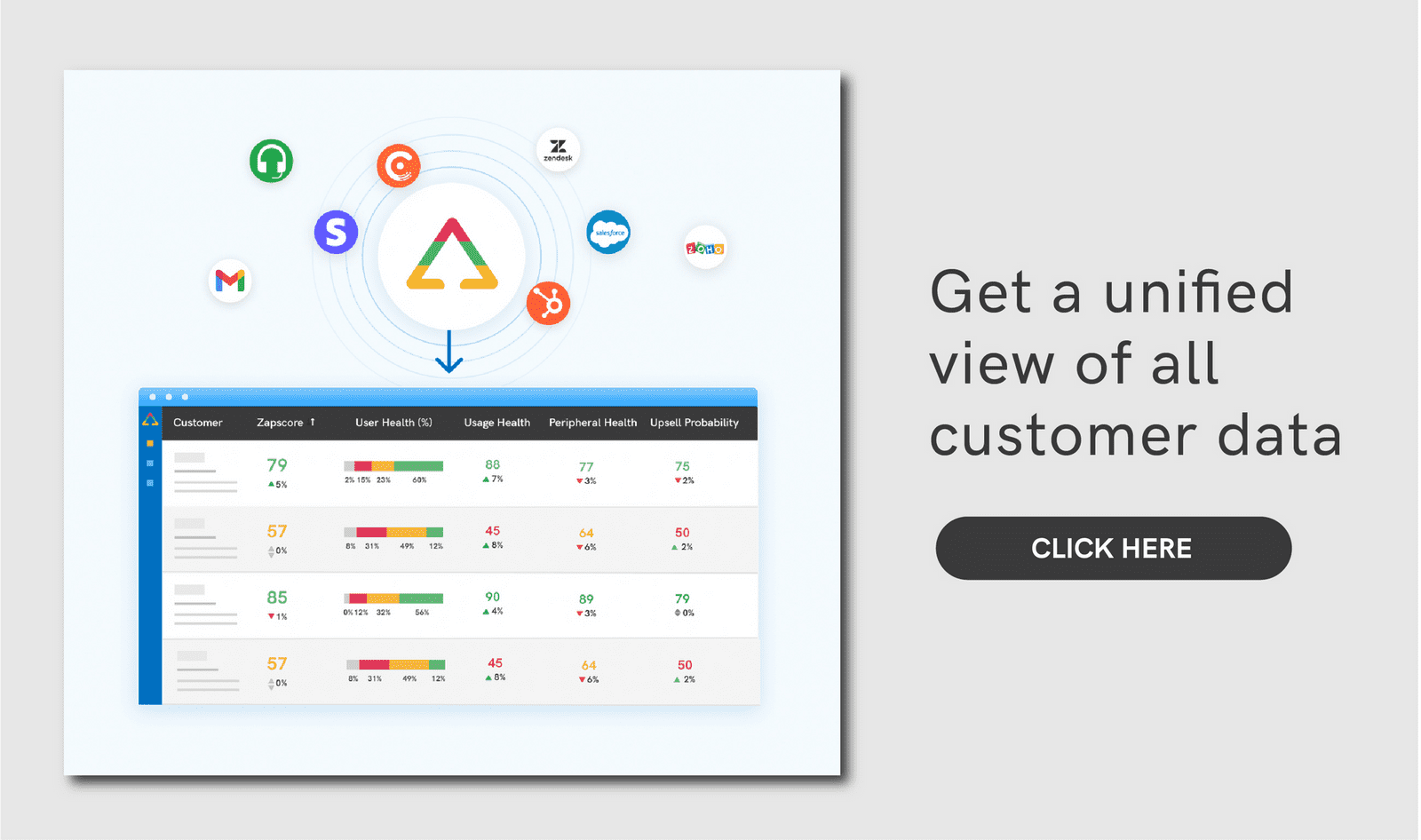
With features such as data cleaning, deduplication, enrichment, and segmentation, ZapScale ensures that customer data is accurate, up-to-date, and actionable. This enables SaaS companies to deliver personalized experiences, understand customer needs, and drive growth more effectively.
By combining the strengths of both CSP and CDI, ZapScale offers a holistic solution that empowers companies to manage customer relationships and data seamlessly, leading to improved customer satisfaction, retention, and revenue generation.
Frequently Asked Questions (FAQs)
1. Why is creating a unified customer profile important?
A unified customer profile helps you understand your customers better by consolidating data from multiple sources. This comprehensive view helps you understand customer needs and preferences better, allowing you to personalise your marketing efforts and provide top-notch customer service.
2. What tools can help ensure data quality?
There are many tools available out there to help keep your data accurate and consistent. Data validation software checks for errors, data cleansing tools remove duplicates and correct mistakes, and quality management platforms help you monitor and maintain your data standards.
3. How does API integration benefit customer data management?
Using APIs to connect different systems lets you share data in real time. This means your customer information is always current, helping you respond faster to their needs and providing a more seamless experience across all touch points.
ABOUT THE AUTHOR
Popular from Customer Visibility
Quality Content,
Straight To Your Inbox!
Subscribe for the latest blogs, podcasts, webinars, and events!

Write a Blog
If you have experience in CS and
a flair for writing, we’d love to
feature you.
Write to us on
hello@zapscale.com
